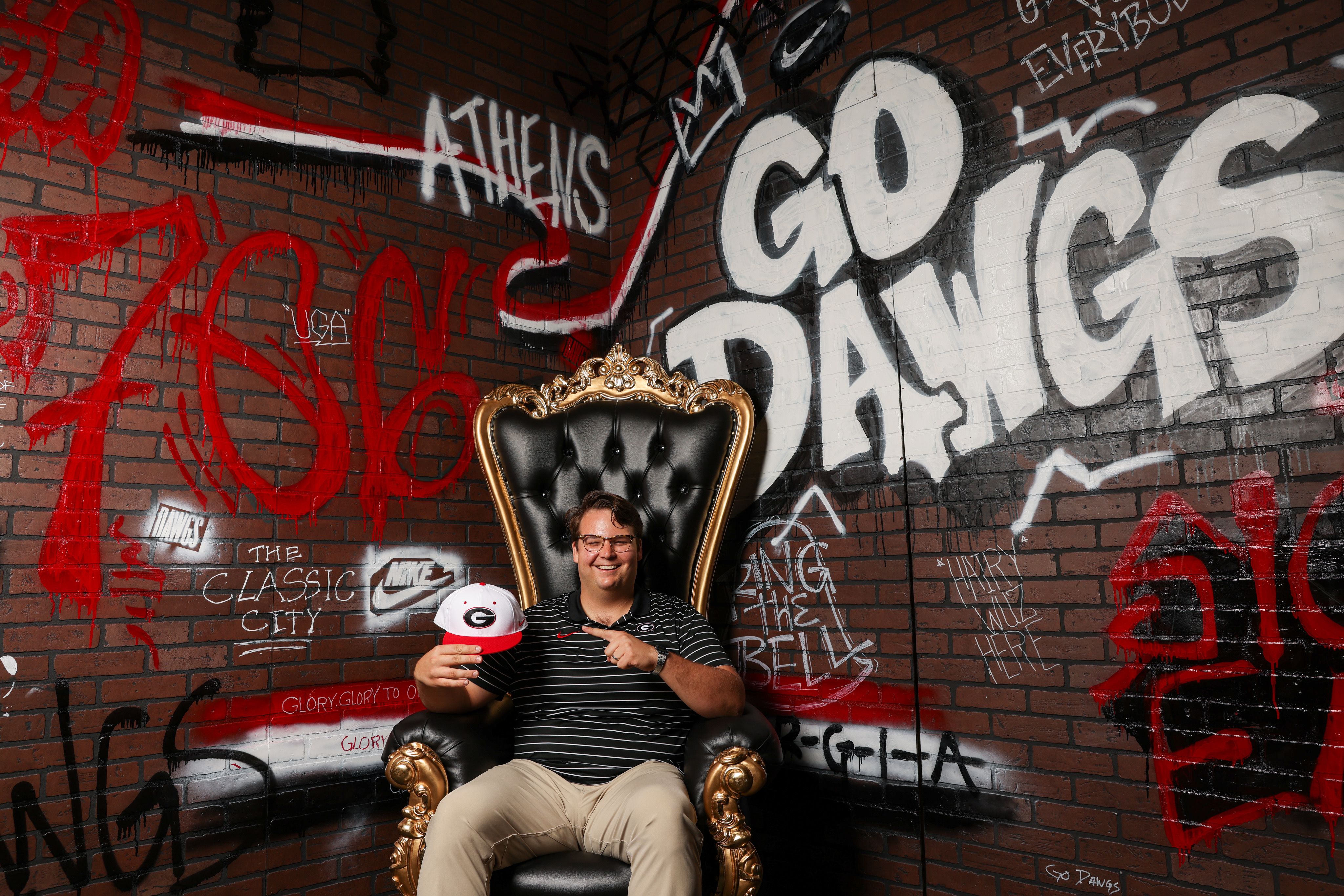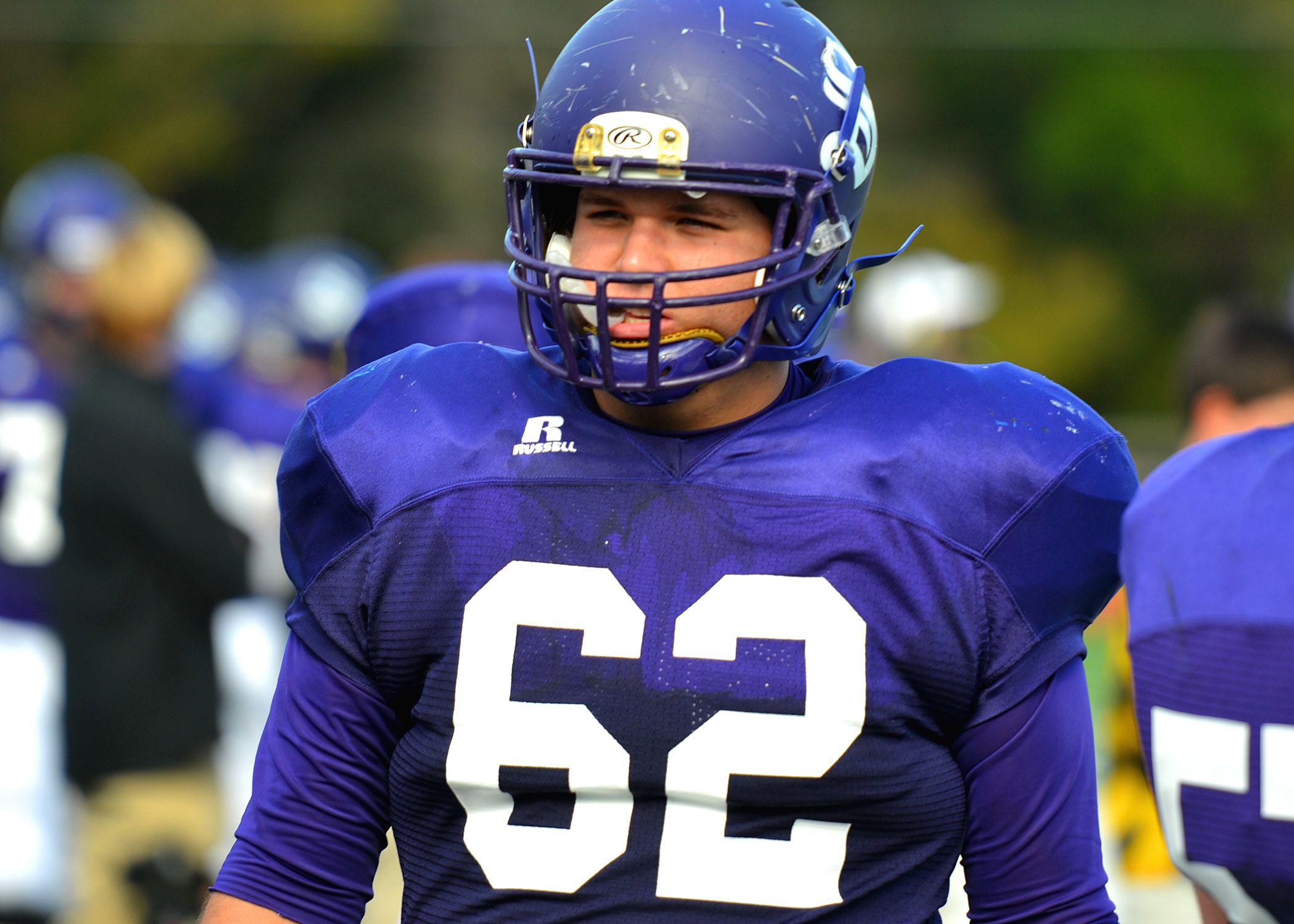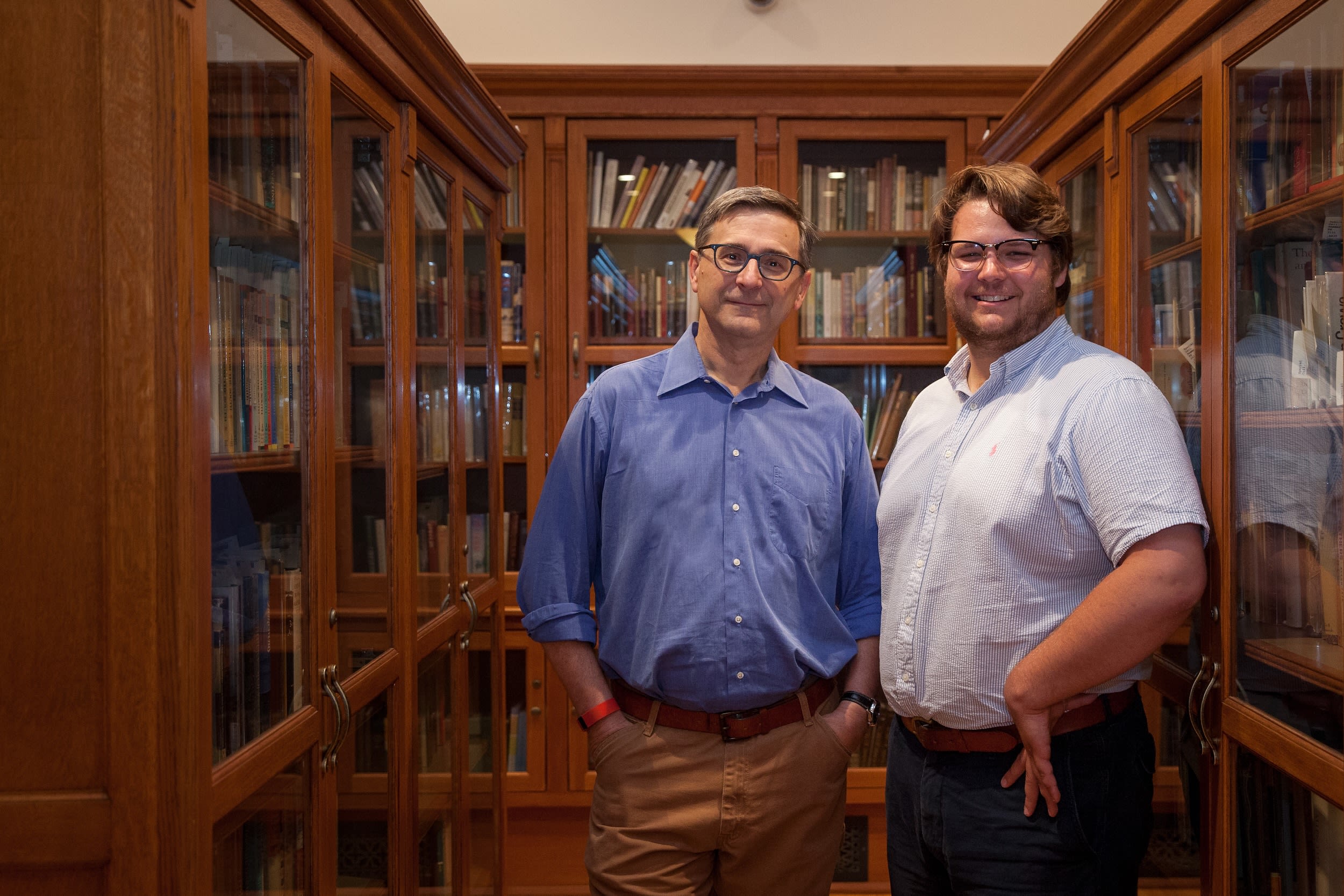Game Changer
As the director of the NIL Department at the University of Georgia, recent law-school grad and former Sewanee football player Tanner Potts, C’15, is on the front line of a revolution in college sports.

On home-game Saturdays during college football season, the first thing Tanner Potts, C’15, likes to do when he arrives at Sanford Stadium at the University of Georgia is count jerseys. He’s not interested in the jerseys on the field, where the two-time defending national champion Bulldogs are warming up. Rather, he’s scanning the 92,000 fans filling the stands, looking for those red and black shirts with the names and numbers of Bulldog players, like All American tight end Brock Bowers or standout free safety Malaki Starks.
“Three years ago, you couldn’t buy a jersey with a name and number on the back,” Potts says. “Now at games I’ll see tons of them. It’s a brand-new thing. You see a little kid with a jersey, it makes them even more invested in the Dawgs. It’s really cool.”
Last April, Potts became director of UGA’s new NIL Department, NIL standing for “name, image, and likeness,” an acronym that is revolutionizing college athletics. Traditionally, campus athletes were considered amateurs and unable to receive payment beyond scholarships covering things like tuition, room, board, and textbooks. All that changed in the summer of 2021 when the U.S. Supreme Court ruled that student-athletes can be compensated for the use of their names, images, and likenesses in commercial ventures ranging from jerseys and billboards to television commercials and video games.
Nationwide, NIL has become a multimillion-dollar proposition. Consider just Bowers’ NIL value this season alone. The sports analysis firm On3 estimates that the 20-year-old is worth nearly $700,000. Potts’ job is to help Bowers and all UGA athletes—of all sports, men and women—transform such estimates into reality. With very few guidelines on how to bring athletes and companies together, every university in the country with a sports program is charting its own NIL path. Potts has been given the task of doing this at UGA, a school that boasts one of the most accomplished and prestigious athletic departments in America.

Potts on the field during his playing days with the Tigers.
Potts on the field during his playing days with the Tigers.
“College sports was done a particular way for a long time, and change is difficult,” concedes Potts, who graduated from UGA law school last year. But he insists that his guiding principle through it all is pretty simple. “I want to make sure our athletes feel supported, and I want to maximize their opportunities while they’re here on campus.”
Living a life saturated in college sports is nothing new for Potts. He grew up in both Nashville, Tennessee, and Agoura Hills, California, where his father worked as the athletic director for Lipscomb University and Pepperdine University respectively. “We’re a sports family,” says Potts, whose brother Tyler currently works for the Los Angeles Rams in corporate partnerships. “We spent weekends going to college basketball and football games. That was the norm for us. That was how we got to spend time with our dad.” As a kid he played everything: baseball, soccer, lacrosse, flag football. He threw the shot put for his high school track team. He played center on the football team.
Potts had never set foot on the Sewanee campus when he arrived from California for his freshman year in August 2011. He had applied for a tuition-exchange scholarship, and Sewanee was simply one of the colleges on the list. “I wanted a place with strong academics, I wanted to play football, and I wanted to get back to Tennessee,” he says. Sewanee ticked all those boxes. When he saw the place for the first time, he knew he had chosen wisely. “I thought it was beautiful. The best thing about Sewanee is its location and natural beauty.”
Despite winning only 14 games during his four years, Potts loved playing football for the Tigers. “It was wonderful to experience Sewanee through this particular group of people,” he says. “We weren’t that successful on the field, but I would do it all over again.”
The other major influence during his time at Sewanee was History Professor Woody Register, C’80. That relationship, unexpectedly, also involved college sports. Potts was a history and American studies major, and he liked that Register’s classes challenged him in new and exciting ways. After graduating in 2015, he assisted Register in creating an exhibition in the University Archives called “Founded to Make Men: Explorations of Masculinity at the University of the South.” The exhibit focused especially on the storied 1899 football team and on the team’s legendary, longtime trainer, Willie Sims. Sims, known as “Willie Six” for the hand-me-down jersey he wore to practices, occupied an unusual place in Sewanee history as a beloved African American negotiating the racist Jim Crow South. “His proximity to Sewanee icons, like the football team, both challenged racial norms and reinforced them,” says Potts.

Potts (right) with Roberson Project Director Woody Register, C'80.
Potts (right) with Roberson Project Director Woody Register, C'80.
The success of the masculinity exhibit led Register and Potts to dig deeper into the racial issues of Sewanee’s past, and those efforts quickly expanded into the Roberson Project on Slavery, Race, and Reconciliation. For two years, Potts chased leads across the South, unearthing dusty documents in archives from Baton Rouge to Savannah to Chapel Hill. “I’d come home with my phone filled with pictures and scans of record books from churches, old plantation records, all kinds of stuff,” he says. “I also spent long days where I didn’t find anything, so it was really special when I could give Woody a call and report a discovery. It was amazing.”
Potts always figured he would need more schooling, and he figured law school might lead to some interesting opportunities. When he was accepted at UGA law school, he received an email from Sewanee alum Mike Raeber, C’90, UGA’s general counsel. “It was a very nice note saying that if I ever needed anything to let him know,” recalls Potts. Raeber subsequently introduced Potts to people in the athletics department, where he landed a job during the summer of the Supreme Court’s NIL decision. He continued working there during his third year of law school, in the compliance office, helping staff and coaches understand and work within NCAA rules. “I had a front row seat to see how UGA implemented NIL,” he says.
While several bills have been introduced recently in Washington designed to regulate NIL, Potts says the practice currently is fairly wide open. He administers a platform where companies can pitch deals to athletes. But companies can also simply reach out to athletes directly, and athletes can contact businesses directly themselves. Some athletes have marketing representatives. However these various parties meet up, Potts works in conjunction with various NIL consultants (UGA works with a consulting company called Altius Sports Partners) to counsel athletes on everything from negotiating deals to understanding contracts to building brands. “I didn’t sign a contract until my first apartment after I graduated from college,” Potts says. “We want to make sure our athletes are making good decisions that normal 18-year-olds aren’t making.” He stresses that NIL isn’t just about men’s football and basketball. “Competing as a Georgia Bulldog makes you a celebrity in Athens,” he says. “Women’s volleyball, softball, gymnastics, those athletes, if they’re willing to hustle, they can do well.”
All of this is a world away from the sports experience Potts had at Sewanee, where not only did football players not get athletic scholarships, but they had to clear out of their lockers immediately at the end of the season so the lacrosse players could have them. “Coming from a DIII school and absolutely loving that—like I said, I’d do it all over again—it’s been fun to see college athletics at this level,” he says. “It’s been fun to be part of this new phase.”
